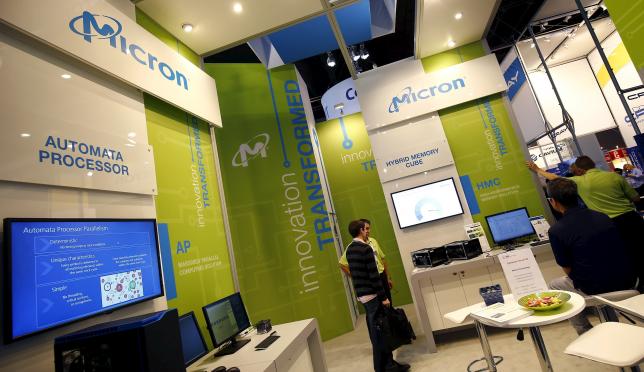|
 |
|
The booth of US memory chip maker MicronTechnology is pictured at an industrial fair in Frankfurt, Germany, July 14, 2015. [Photo/Agencies] |
Micron Technology Inc has told China's Tsinghua Unigroup Ltd that its $23 billion acquisition offer is not realistic because US authorities would block the deal due to national security concerns, according to people familiar with the matter.
The Boise, Idaho-based chipmaker's response to Tsinghua's overtures illustrates the hurdles the Chinese investment firm would have to overcome given the enormous dependence of modern weapons on computer chips.
Micron thinks that an acquisition by Tsinghua would not be approved by the US inter-agency task force called the Committee on Foreign Investment in the United States (CFIUS), which has the power to stop mergers that might endanger national security, the people said on Monday.
By the end of last week, Tsinghua had communicated its interest to Micron about an acquisition but had not presented a formal offer, according to the people.
Micron has sought advice from an investment bank but has not officially hired one since it is not seriously considering Tsinghua's offer, the people said. Micron may decide to retain a bank in the future if Tsinghua presses on with its offer, the people added.
The sources asked not to be identified because the deliberations are confidential. Micron and Tsinghua declined to comment.
Idaho-based Micron is the last major US-based manufacturer of so-called dynamic random access memory (DRAM) chips, which are used in personal computers.
Acquiring Micron's cutting-edge memory manufacturing technology would be a major step for China's modest but up-and-coming chip industry, led by Tsinghua.
The deal would come under fierce regulatory scrutiny, said Stewart Baker, a CFIUS expert with Steptoe & Johnson LLP. "It would be very challenging," said Baker. "I won’t say it's impossible."
CFIUS has three options when reviewing the deal: It can stop it, approve it, or it can approve it on condition that the companies sell a particular division or divisions or take other steps to mitigate any harm that the deal might do.
Last Monday, sources said Tsinghua was preparing to bid $21 per share for Micron, a 19.3 percent premium to the stock's closing price before the news broke. Analysts have argued Tsinghua's proposed price was far too low. Micron shares were trading at $19.16 on Monday afternoon.
Unigroup transformed into a serious semiconductor player after it bought Chinese chipmakers RDA Microelectronics and Spreadtrum in deals totalling $1.6 billion last year.
